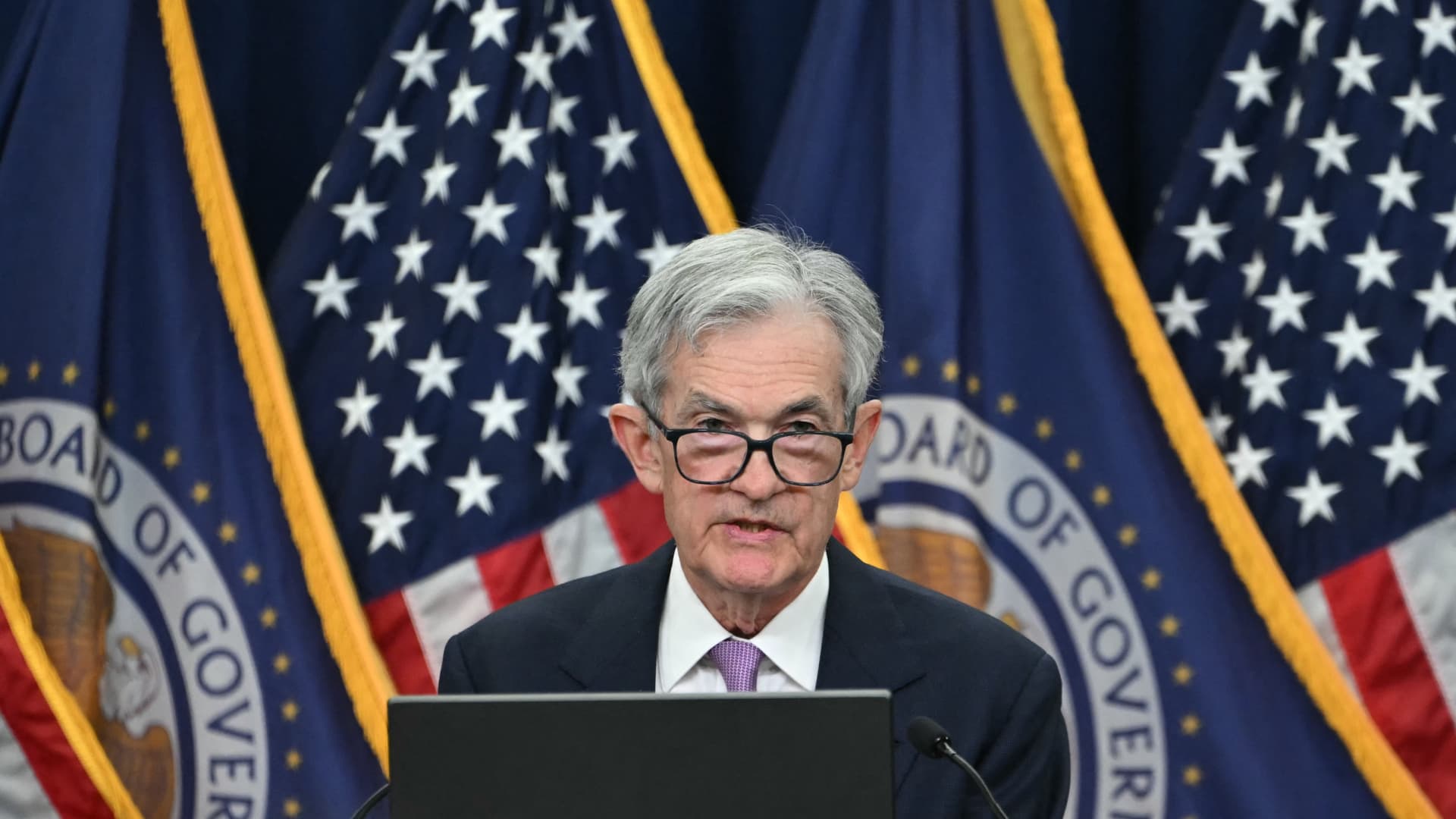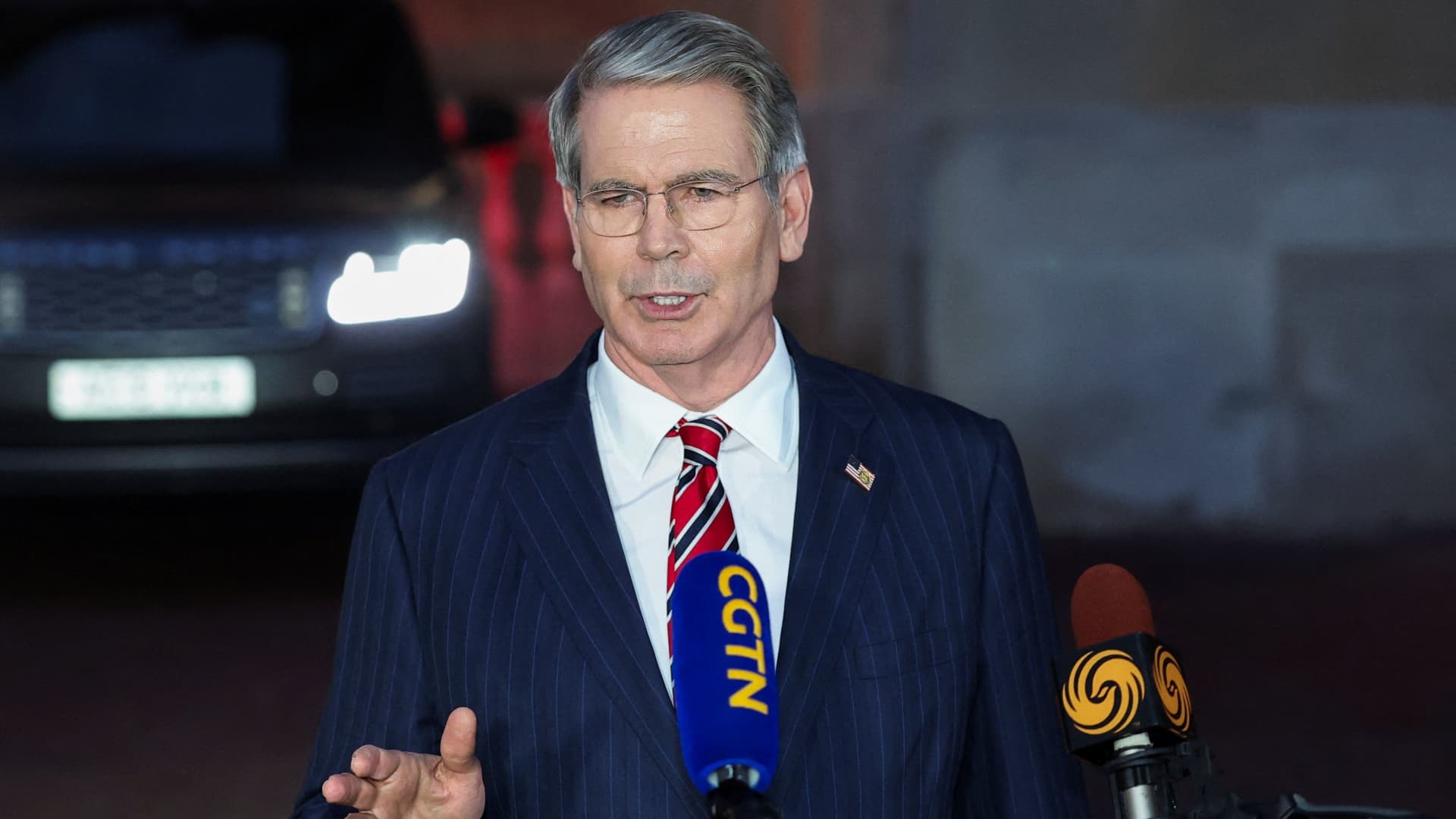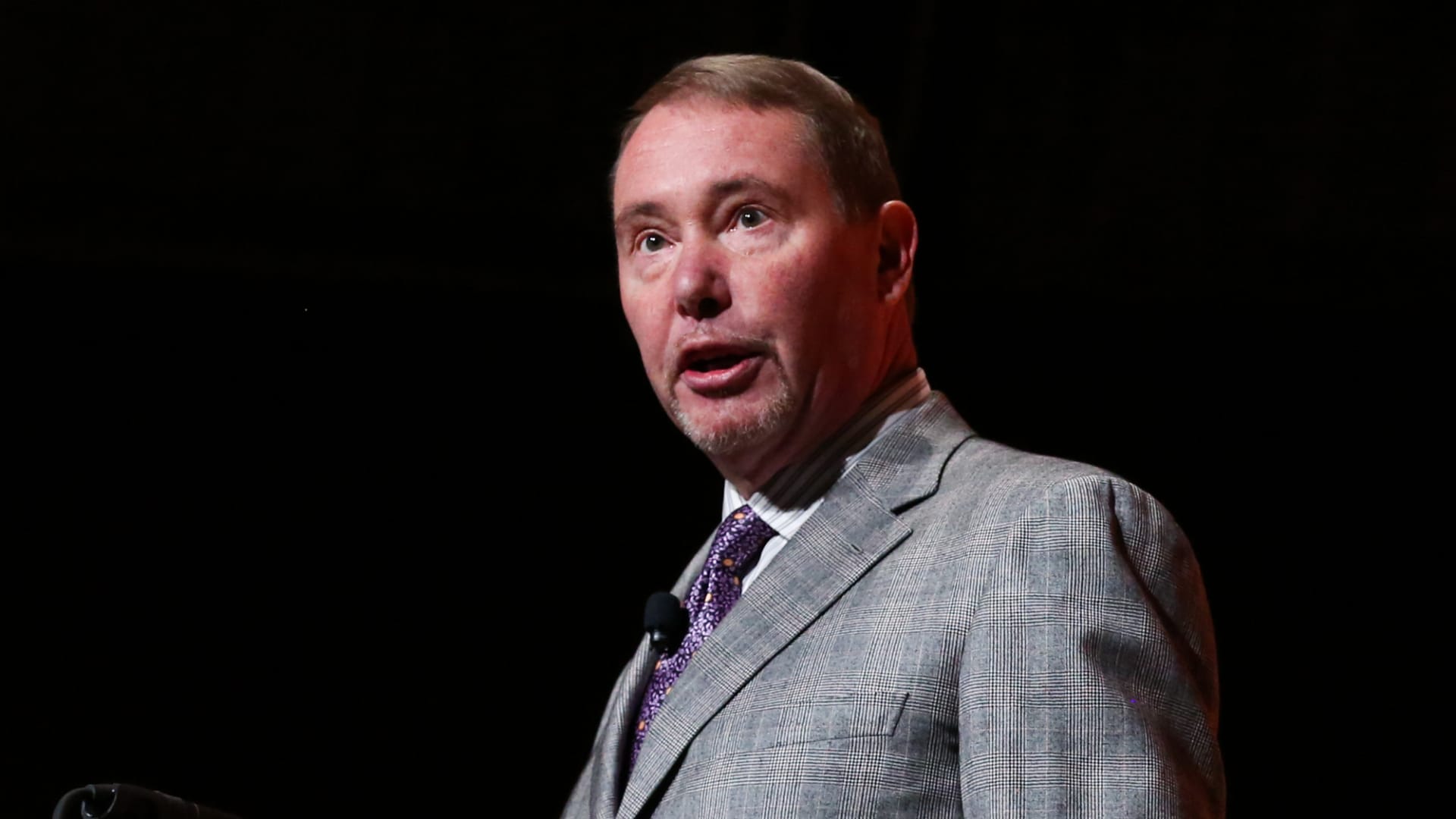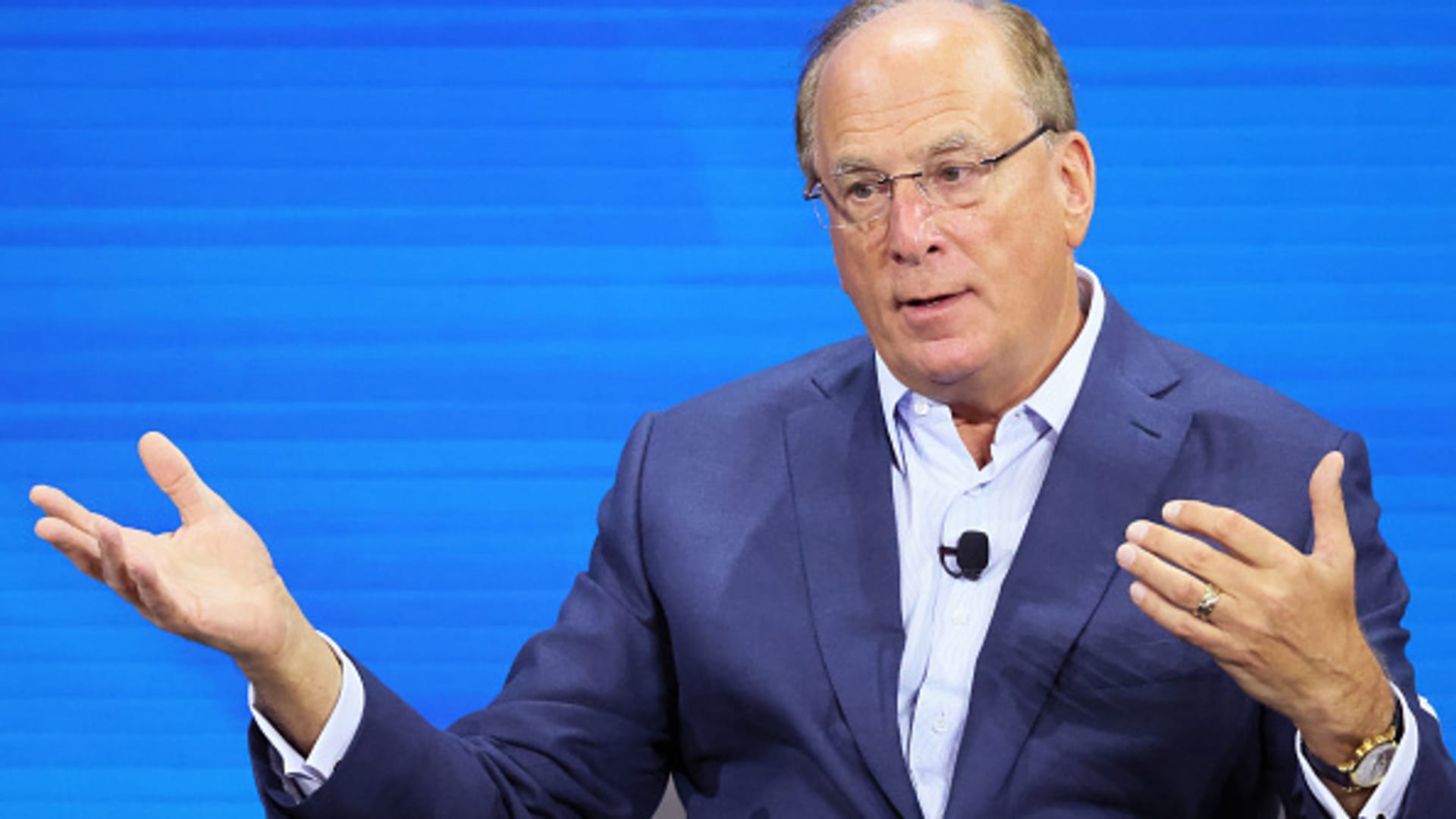BlackRock CEO Larry Fink has sent a clear message to investors: The world’s largest asset manager’s smallest acquisition last year could end up its most consequential. During an industry conference in March, the long-time executive said BlackRock’s $3.2 billion purchase of alternatives asset data provider Preqin — its smallest of the four deals announced in 2024 — is “probably the most significant thing we have done in terms of expanding the profile of private markets.” It could be a big deal for investors, too. For starters, Preqin can bring what BlackRock currently does best — offer investors index products like exchange-traded funds (ETF) for public markets — to the opaque world of private markets. That would add revenue and earnings diversification that’s less tied to the daily fluctuations of the stock and bond markets, BlackRock CFO Martin Small said when announcing the deal in July 2024. “Through strong organic growth and scaling of our private markets and investment technology platforms, both of which fuel stable earnings growth,” Small added. “We believe we can drive multiple expansion for our shareholders.” BLK YTD mountain BlackRock (BLK) year-to-date performance The acquisition, which closed on March 3 , integrates Preqin’s private markets data into BlackRock platforms such as its portfolio management system Aladdin and investment software eFront. This gives BlackRock clients – mostly institutional investors who pay for access to these platforms – more visibility into non-public investment areas like infrastructure, private equity, private credit, and more. They will get valuation and performance data on more than 190,000 funds and 60,000 managers, according to BlackRock. “Preqin effectively does for private markets what Zillow did for housing,” CEO Fink said in his 2025 annual chairman letter . “If you’re buying a home, you want to know if you’re paying a fair price, and there are ways to do that. You can check neighborhood benchmarks, recent sales, or historical appreciation trends; companies like Zillow have made this simple. But today, investing in private markets feels a bit like buying a house in an unfamiliar neighborhood before Zillow existed, where finding accurate prices was difficult or impossible.” “This lack of transparency discourages investment,” he added. The new venture could take some of the pressure off BlackRock’s index business, which manages trillions of dollars and makes up a significant portion of its overall revenues. Although the firm has profited immensely as a traditional asset manager and has become an industry leader for ETFs, the division’s revenue streams are still at the mercy of the stock market’s volatility. BlackRock also has to pay fees to third-party providers like S & P Global and MSCI to use their underlying data in BlackRock funds. The longer-term goal is for BlackRock to create its own private-market benchmarks and sell more accessible private index products. Fink has also said private market investments could play a role within retirement accounts like IRAs, touting them as offering higher returns. “Not that we’re making a pivot, we just see the blending of public and private markets coming together and [it’s] probably happening faster than I ever envisioned,” Fink said at RBC Global Financial Institutions Conference in March. There are signs that the Preqin deal is already starting to pay off. Preqin added roughly $20 million to first-quarter revenue — even though it was owned for less than a third of the period — and contributed to the firm’s 30% year-over-year increase in annual contract values, or ACV, Small said during the company’s April earnings call. The CFO said this new “growth reflects sustained demand” from Preqin and that the trend shouldn’t die down anytime time. “We remain committed to low to mid-teens ACV growth over the long term,” he said. ACV is a financial metric that represents the average annual revenue from a customer contract. Offering retail investors access to private market investments doesn’t come without risk. Moody’s has warned that selling funds to retail investors could result in “reputation loss, heightened regulatory scrutiny and higher costs” for asset managers, the Wall Street Journal reported Tuesday. “If growth outpaces the industry’s ability to manage such complexities, such challenges could have systemic consequences,” Moody’s analysts wrote. However, in his annual chairman letter, Fink wrote that “private markets don’t have to be as risky. Or opaque. Or out of reach.” He added: “Not if the investment industry is willing to innovate—and that’s exactly what we’ve spent the past year doing at BlackRock.” There’s more to like about the Preqin acquisition. The deal should attract more clients and deepen its existing relationships. The competition for private markets data providers is limited, and Preqin has one of the most comprehensive data sets available. That could result in more valuable contracts with its existing clients and an increase in sales. We see this in the impact of similar acquisitions on BlackRock’s financials. Since BlackRock’s eFront acquisition in 2019, for example, BlackRock has doubled the annual contract value of the business. As these BlackRock platforms get bigger and integrate more data, they should retain customers and lure new ones in from rival asset managers. “In our thesis about demand for a whole portfolio view combining Aladdin and eFront capabilities, it’s driven new sales for both Aladdin and eFront,” Small said last July. “We’ll look to repeat this success with Preqin and have a business plan that we believe can generate significant synergies resulting in an 18% [internal rate of return].” Better client relationships also means Preqin can create a flywheel effect within BlackRock. Clients who use Preqin could be more inclined to tap BlackRock for its other services as well. “Preqin just makes [these platforms] better and crowds out competition and drives growth in all [BlackRock’s] businesses,” Evercore analyst Glenn Schorr told CNBC recently. “What’s probably even more appealing to this amazing asset manager is the insights [Preqin] can bring on where and how it can grow in the future as an asset manager, and then the value that [the deal] can bring to their large LPs that they manage money for,” Schorr said. “I think that’s the mindset that Larry probably had when he was talking about how important of a business this could be for them.” And lastly, BlackRock’s Preqin buy further expands the firm into the fast-growing world of private markets, which have grown enormously over the past several years as investors look for alternatives. It follows the firm’s other recent moves in the space. BlackRock closed a $12.5 billion deal for infrastructure investment firm Global Infrastructure Partners in October. The firm is also expected to complete its purchase of private credit manager HPS Investment Partners for $12 billion as well in 2025. “There are few people that would disagree that private markets are a continued very large growth opportunity for any good asset manager, any good wealth management firm [or] any good bank as well,” Schorr said. (Jim Cramer’s Charitable Trust is long BLK. See here for a full list of the stocks.) As a subscriber to the CNBC Investing Club with Jim Cramer, you will receive a trade alert before Jim makes a trade. Jim waits 45 minutes after sending a trade alert before buying or selling a stock in his charitable trust’s portfolio. If Jim has talked about a stock on CNBC TV, he waits 72 hours after issuing the trade alert before executing the trade. THE ABOVE INVESTING CLUB INFORMATION IS SUBJECT TO OUR TERMS AND CONDITIONS AND PRIVACY POLICY , TOGETHER WITH OUR DISCLAIMER . NO FIDUCIARY OBLIGATION OR DUTY EXISTS, OR IS CREATED, BY VIRTUE OF YOUR RECEIPT OF ANY INFORMATION PROVIDED IN CONNECTION WITH THE INVESTING CLUB. NO SPECIFIC OUTCOME OR PROFIT IS GUARANTEED.

 Personal Finance1 week ago
Personal Finance1 week ago
 Economics1 week ago
Economics1 week ago
 Economics4 days ago
Economics4 days ago
 Economics1 week ago
Economics1 week ago
 Economics4 days ago
Economics4 days ago
 Finance4 days ago
Finance4 days ago
 Economics4 days ago
Economics4 days ago
 Finance3 days ago
Finance3 days ago









